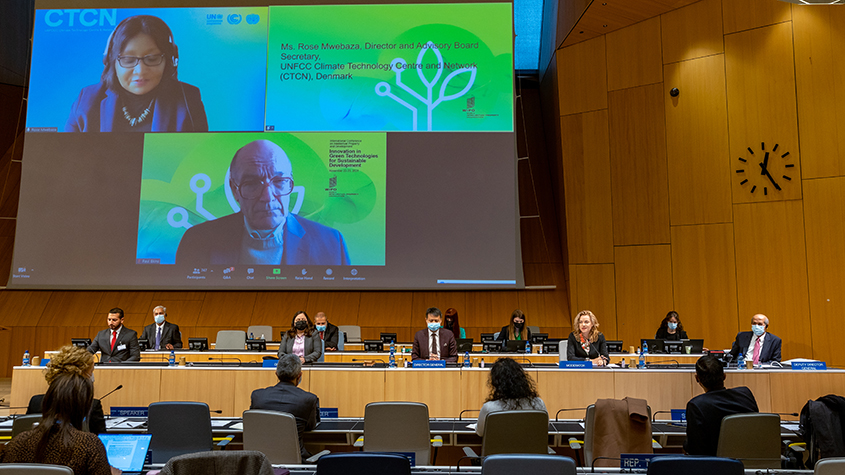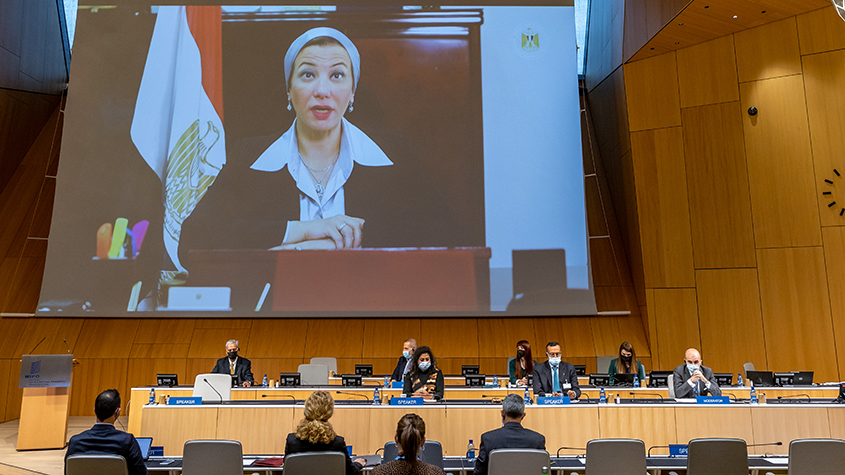International Conference on Intellectual Property and Development – Innovation in Green Technologies for Sustainable Development
November 25, 2021

WIPO’s third International Conference on Intellectual Property and Development concluded on November 23, 2021 with participants agreeing on the importance of supporting innovation in green technologies to ensure a safer and greener future for next generations while spurring economic growth.
The two-day conference, gathering some 1,300 participants in a hybrid format, focused on the theme “Innovation in Green Technologies for Sustainable Development.” It brought together speakers from IGOs, NGOs, academia and the private sector to explore the potential of green innovation in contributing to sustainable development, the role of intellectual property in this area, and the challenges faced by developing countries in fostering, accessing and using green solutions.
The event was organized in the context of the WIPO Development Agenda and at the request of WIPO’s Committee on Development and Intellectual Property (CDIP).

The Conference was opened by WIPO’s Director General Daren Tang, who highlighted the need to encourage innovation in green technology, its potential to help achieve broader development goals, and how intellectual property can help to speed up the diffusion of these technologies.
“We need to support the scientists, the innovators, the inventors around the world who are coming up with new green solutions every day,” WIPO Director General said in opening remarks. He added that “IP is playing an important role in reducing the time it takes to bring green innovation to market” and that “the end result is that green technologies are creating real impact on the ground”.
In a keynote address, Egypt’s Minister of Environment Yasmine Fouad stressed that “the trend towards environmental sustainability is not a choice but rather an imperative necessity imposed on all countries” and that “innovation in green technologies would come as a key, as a unique opportunity for ensuring achieving sustainable development”. Egypt will host next year’s UN Climate Change Conference - COP27.

Ambassador Tatiana Molcean, Permanent Representative of Moldova to the UN in Geneva, moderated a discussion on how green innovation could contribute to the Sustainable Development Goals, drawing on the findings of research and concrete examples of green success stories from different regions. Participants also discussed the role of intellectual property rights in incentivizing the development of green technology and promoting sustainability, and the different approaches that “green actors” take to protect and promote their IP assets.
Ambassador Salim Baddoura, Permanent Representative of Lebanon to the UN in Geneva, moderated another discussion on the challenges faced by developing countries in the area of green innovation, policies that may be implemented to address them, as well as initiatives that are succeeding in bringing positive transformational change in this field.
In closing remarks, WIPO’s Deputy Director General for the Regional and National Development Sector Hasan Kleib outlined the main messages stemming out of the Conference. He underlined the tremendous challenge that societies face to ensure a safer and greener future for next generations, the importance of supporting innovation in green technologies to address that challenge while spurring economic growth, and the need to find creative strategies to facilitate the availability and use of green innovations for everyone, everywhere.
In the context of the Conference, WIPO also featured case studies of green tech start-ups, highlighting their contribution to realizing the Sustainable Development Goals and unpacking their strategies as regards the use of intellectual property tools.